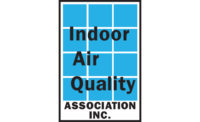IAQA Legislative Update
August 2015 Update

Rules, regulations and laws are constantly changing and evolving in all states, affecting the daily work of restoration and remediation companies. It can sometimes feel like a full-time job keeping up on your state’s regulations, and making sure you’re in compliance. That’s why Restoration & Remediation is teaming up with the Indoor Air Quality Association to bring you this monthly legislative update. The IAQA works with a variety of other industry organizations (RIA, AIHA, IIRCR, EIA, PACNY) to coordinate a united approach to the rulemaking process whenever possible.
Let’s get right down to business! Here are your updates for August:
-
New York: two bills requiring mold licensing for assessment and remediation have been signed into law by Gov. Cuomo. Applications for training providers are being accepted now and all practioners must have a New York license by Jan. 1, 2016. IAQA has assisted the New York State Dept. of Labor (NYSDOL) throughout both the legislative and the rule implementation process by providing research and expertise from our members.
-
NYSDOL has expressed at present that their current position is there will be no provision for reciprocity, nor will there be acceptance of third party certifications or existing industry credentials. Professionals wishing to conduct business in New York will have to undergo NYSDOL-accepted training. It’s unclear yet if completion of training will require an exam, or certificate.
-
Here are some helpful links:
-
Mold training provider application forms: http://labor.ny.gov/formsdocs/wp/shformsandpublications.shtm.
-
DOL’s recommended mold course outline: http://labor.ny.gov/workerprotection/safetyhealth/mold/mold-program.shtm
-
-
-
Texas: IAQA members banded together in the spring of 2015 to stop bills that would have initiated deregulation of the Texas mold licensing programs for remediation and assessment.
-
IAQA members created an independent website and advocacy group savetmarr.org. In remarkable coordination with other associations devoted to respiratory health and indoor environmental quality, a coalition opposed to deregulation in lieu of reform, succeeded in persuading the bill sponsors to withdraw the deregulation legislation.
-
-
Florida: similar to Texas, in the past year there was a state-driven initiative to drastically alter the responsibilities of assessors and remediators when it comes to mold remediation. With the help of ASHRAE, IAQA’s government affairs committee solicited consensus in record time and was thus enabled to advocate for the withdrawal of proposed reforms in Florida which would have harmed the livelihood of our members.
-
New Hampshire: Legislation for mold assessment licensing (note that remediators are not required to be licensed) will now go to the NY Dept. of Justice’s Board of Licensing and Certification for rulemaking. By the time IAQA became involved, the New Hampshire Mold Coalition had successfully navigated legislation through both legislative houses and to Gov. Hassan for signature. This occurred with the invaluable collaboration of the regional representatives of the American Lung Association. Now IAQA government affairs will be making strident efforts to join in the regulatory process as events develop.
-
Capital region:
-
Washington, D.C.: the city council passed an aggressive agenda concerning indoor air quality standards. Perhaps needing assistance, IAQA is volunteering to provide D.C. with assistance. D.C. received authorization to move forward from the U.S. House in September.
-
Virginia: the law passed earlier this year is relevant mostly to landlords and their responsibility when it comes to mold. Our local prospective chapter chairs are working with the State of Virginia as this moves forward.
-
Maryland: One change occurred recently on the Maryland Home Improvement Commission website that loosened the restrictions for mold companies operating in Maryland. Until early this year, the commission stated a mold remediation company performing demolition services must be licensed as a home improvement contractor, and not licensed if performing cleaning services only. Now, mold companies performing demolition or cleaning do not need to be licensed, according to their latest guidance.
-
-
California: Two bills currently being discussed:
-
Senate bill 655 (mold standards): http://www.legislature.ca.gov/cgi-bin/port-postquery?bill_number=sb_655&sess=CUR&house=B&author=mitchell_%3Cmitchell
-
Assembly bill 1126 (school air quality): http://www.leginfo.ca.gov/pub/15-16/bill/asm/ab_1101-1150/ab_1126_bill_20150420_amended_asm_v98.pdf
-
The IAQA Government Affairs Committe invites all of our members to become involved. Our mission is more than only observing government activity that affects our members. IAQA will take an active advocacy position when there is a consensus among our members. Moreover, we welcome IAQA members in good standing to join the committee, or to participate as special advisors on any particular government initiative. If you want to contribute, please join us! We want to hear from you: cwds@fiberlock.com.
Looking for a reprint of this article?
From high-res PDFs to custom plaques, order your copy today!




